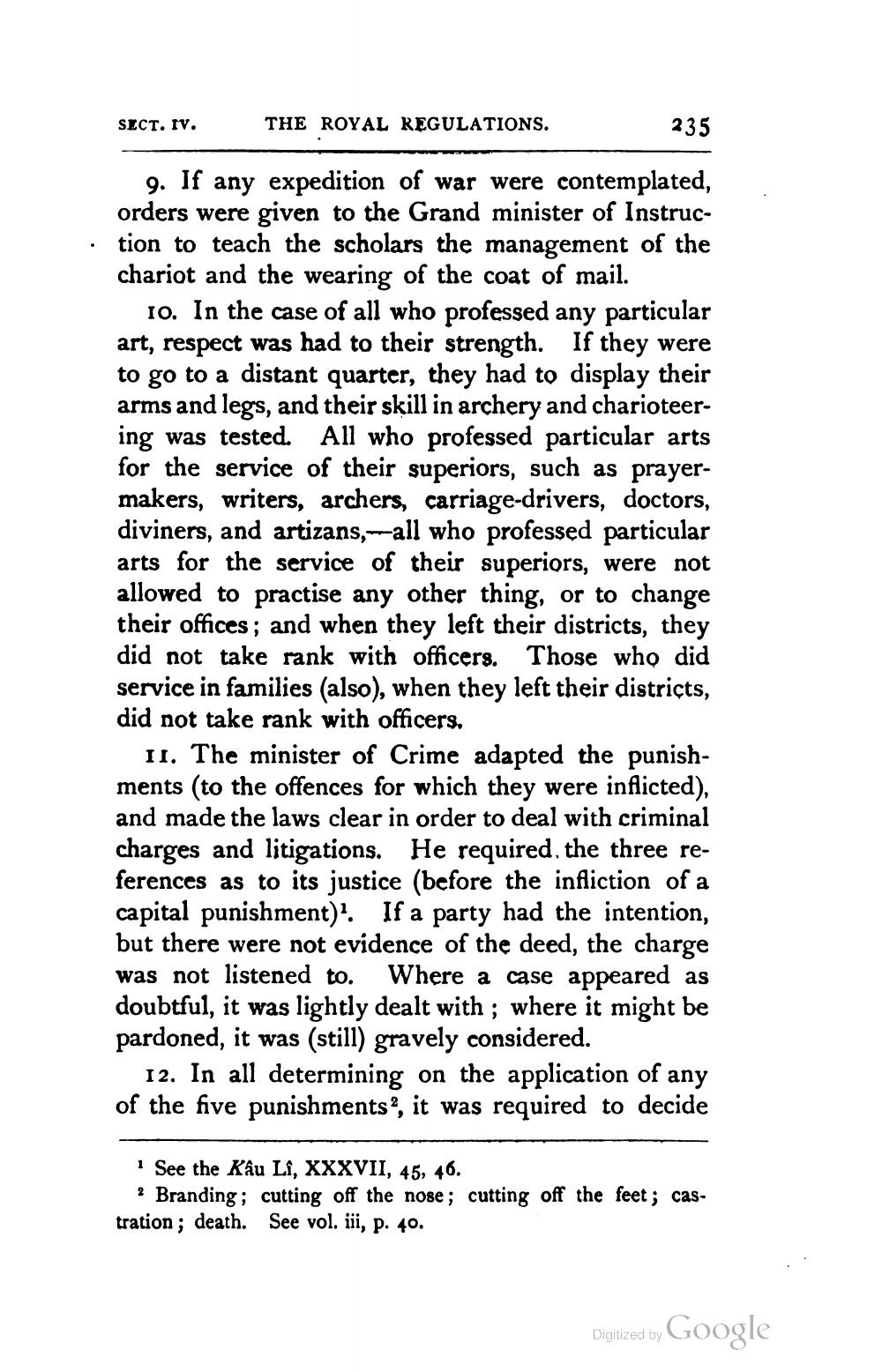________________
SECT. IV.
THE ROYAL REGULATIONS.
235
9. If any expedition of war were contemplated, orders were given to the Grand minister of Instruction to teach the scholars the management of the chariot and the wearing of the coat of mail.
10. In the case of all who professed any particular art, respect was had to their strength. If they were to go to a distant quarter, they had to display their arms and legs, and their skill in archery and charioteering was tested. All who professed particular arts for the service of their superiors, such as prayermakers, writers, archers, carriage-drivers, doctors, diviners, and artizans,mall who professed particular arts for the service of their superiors, were not allowed to practise any other thing, or to change their offices; and when they left their districts, they did not take rank with officers. Those who did service in families (also), when they left their districts, did not take rank with officers.
11. The minister of Crime adapted the punishments (to the offences for which they were inflicted), and made the laws clear in order to deal with criminal charges and litigations. He required the three references as to its justice (before the infliction of a capital punishment)?. If a party had the intention, but there were not evidence of the deed, the charge was not listened to. Where a case appeared as doubtful, it was lightly dealt with ; where it might be pardoned, it was (still) gravely considered.
12. In all determining on the application of any of the five punishments, it was required to decide
See the Kâu Li, XXXVII, 45, 46. ? Branding; cutting off the nose; cutting off the feet; castration; death. See vol. iii, p. 40.
Digitized by Google




